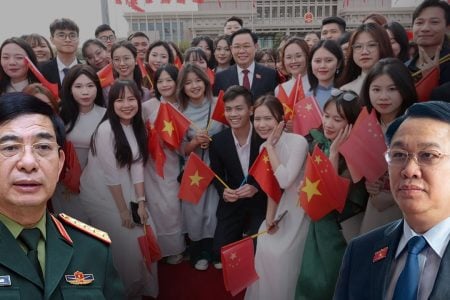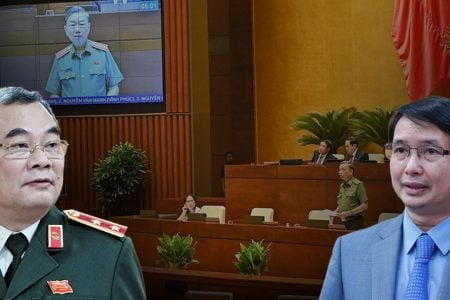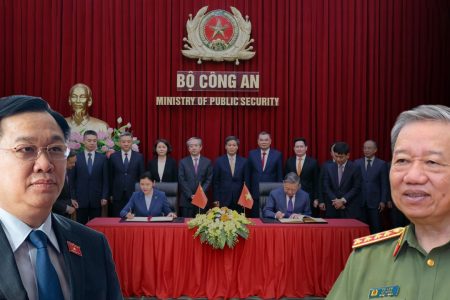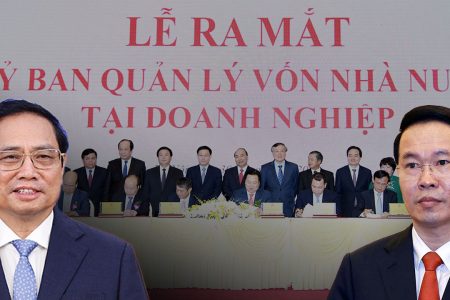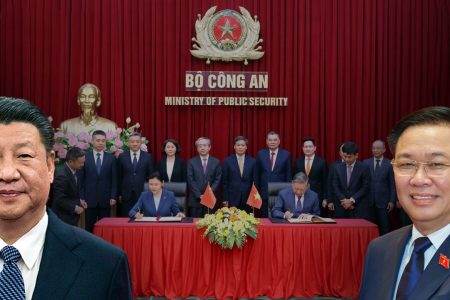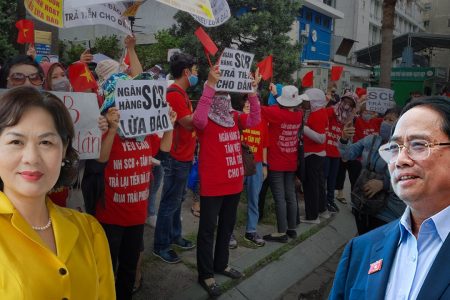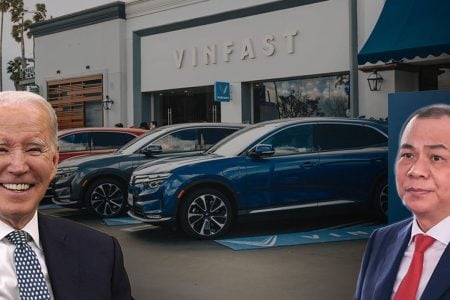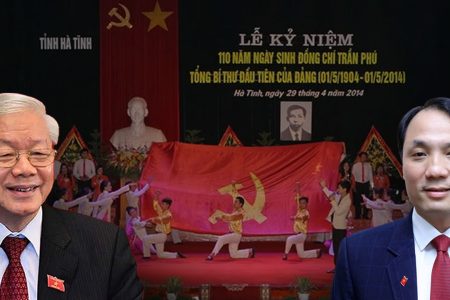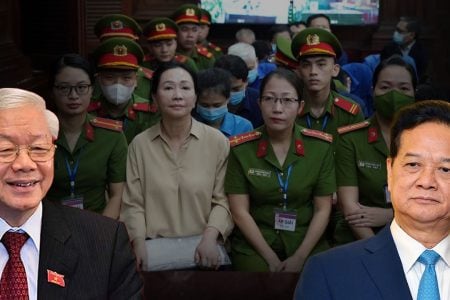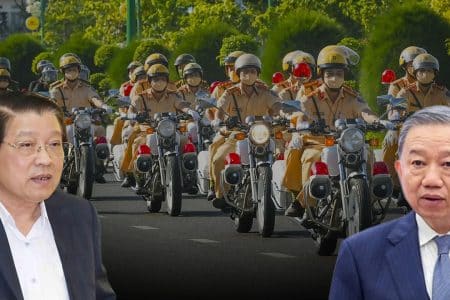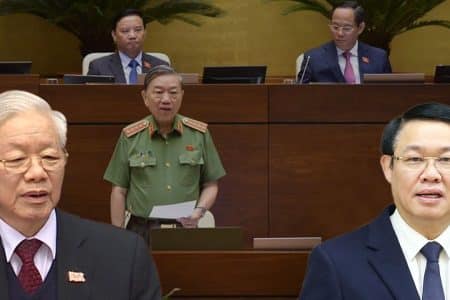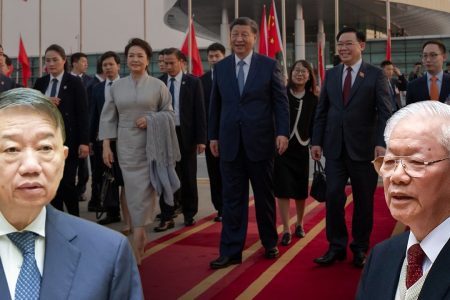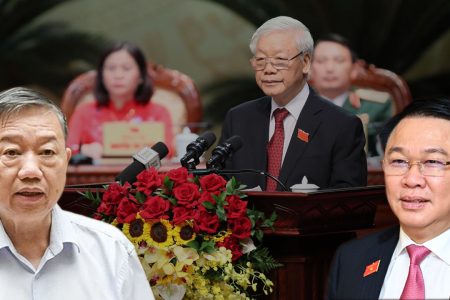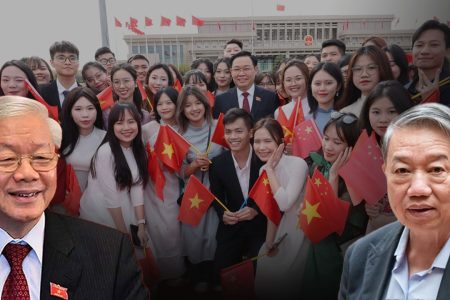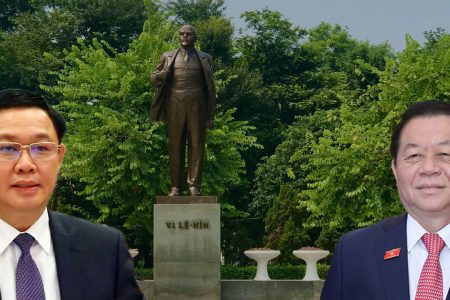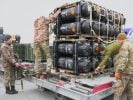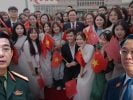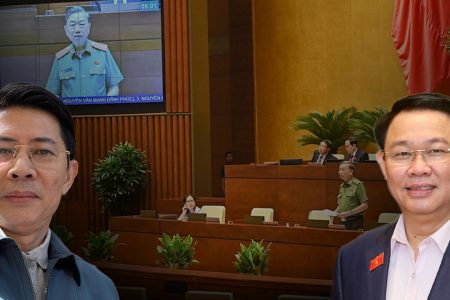
As the starting point of the Covid-19 pandemic, China is stepping up the provision of the coronavirus vaccine as a foreign policy to increase its influence around the world, especially in Southeast Asia. But Vietnam is trying to resist Beijing’s vaccine diplomacy, and so far has not received the “made in China” vaccine. The problem is, in the long run, in order to have enough vaccines to be vaccinated for the entire population, the Hanoi government will probably have to import Chinese vaccines as well.
Despite the approval of a total of four vaccines, the Chinese government is in no hurry to vaccinate the Covid people in their country. As of March, less than 50 million Chinese have been vaccinated, or about 4% of the total population, compared with 19% in the US.
China has stated that it can produce at least 2.6 billion doses of vaccine by 2021. As the world’s leading vaccine producer, China is also the largest vaccine exporter: 560 million doses, a quarter of the national production. Beijing has signed trade agreements on vaccine supplies with 27 countries, donating vaccine doses to more than 50 countries. According to the AP news agency, China has committed to providing a total of half a billion doses of vaccine to more than 45 countries.
Political, diplomatic, and economic goals
Aimed at promoting the “made in China” vaccine, Beijing has recently offered to allow easy entry of visitors to those who have vaccinated Covid-19 with a Chinese vaccine.
As the French expert on Chinese foreign and security policy Antoine Bondaz, the Foundation for Strategic Studies, told TV5MONDE on March 27, 2021, on the one hand, China tries to make people forget their responsibility for the Covid-19 pandemic spread globally, on the other hand, Beijing “from now on seeks to take advantage of the pandemic to promote medical diplomacy to achieve political, diplomatic and economic goals.”
According to the British daily newspaper The Guardian on March 27, 2021, China’s “vaccine diplomacy” is being criticized internationally, because the supply of vaccines is accompanied by many conditions and is viewed as a tool to increase geopolitical influence. That is not to mention the allegations that Chinese nationals in countries receiving “made in China” vaccines have been given priority in vaccination.
According to TV5MONDE, the majority of vaccines exported are to Africa. At a time when the US and Europe were having to provide vaccinations for their own people and the UN COVAX program could not meet the needs of poor countries, African countries of course welcomed the gift of “made in China.” China now supplies the Covid vaccine to 17 African countries, mainly the Sinopharm vaccine. The vaccine has the advantage of being both inexpensive and easy to store, as it only needs to be kept between 2 and 8 degrees cold, i.e. in normal refrigerators, not in extremely cold freezers, such as with vaccines Pfizer / BioNtech and Moderna.
Vaccines “made in China” in Southeast Asia
China’s “vaccine diplomacy” also appears to be successful for Southeast Asian countries. According to The Guardian, Beijing has promised to donate vaccines to Brunei, Cambodia, Laos, and Myanmar. The Philippines, despite its dispute over sovereignty over the South China Sea with China, has also been given more than 600,000 doses, before ordering 25 million doses. Indonesia has purchased more than 150 million doses of vaccines Sinovac, Sinopharm, and CanSino. Malaysia and Thailand have also ordered vaccines from China. In general, how did Southeast Asian countries adopt China’s “vaccine diplomacy,” researcher Le Hong Hiep, Southeast Research Institute Asia, told RFI Vietnamese language on March 31, 2021:
“Currently, a lot of countries in Southeast Asia have approved and started the implementation of the vaccination program using China’s Sinovac vaccines, especially Indonesia. Malaysia, Thailand, Cambodia … have all developed declaration to use China’s Sinovac vaccine in recent times. Even the Philippines, which has a rather tense relationship with China in the South China Sea, has approved the use of the Sinovac vaccine made by China.
On a broader scale, we see some differences in the attitudes towards Sinovac vaccines at the government level and on the citizen level. For example, in the Philippines, the government has approved the mass use of the vaccine Sinovac, but most people are skeptical and do not want to be vaccinated with this vaccine.
Although Singapore has not yet approved China’s Sinovac vaccine and has not yet requested to send it to Singapore, China actively sent a batch of Sinovac vaccine to Singapore two months ago, implying urging Singapore to approve the vaccine. Singapore is a developed country with very high standards for health safety, so if Singapore approves the Chinese vaccine Sinovac, its reputation will increase in the world.
With the same prudent stance as Singapore, there is Vietnam. So far, Vietnam has not yet approved any Chinese vaccines. China’s “vaccine diplomacy” overall has made some progress in the region. However, these strides have been uneven and still face a number of significant hurdles.
Even among Chinese people, there are many people who are concerned about the safety and effectiveness of Chinese vaccines, it is understandable that when other countries or people in other countries do not trust the types of this vaccine.”
Particularly in the Philippines, public opinion expressed concern when the 400,000 doses of CoronaVac vaccine donated by China were sent to the country on March 24, just one day after Manila had asked Beijing to withdraw ships out of the exclusive economic zone of the Philippines.

Philippine House of Representatives Vice President Rufus Rodriguez asked to clarify one thing: did the government “trade” anything with China when accepting this gift, because the timing of the vaccine was to coincide with China’s brought ships into Philippine territorial waters? But Secretary of State Teodoro Locsin Jr. asserted that the two issues are not related.
Vietnam: For how long?
And Vietnam is trying to resist China’s “vaccine diplomacy,” but for how long?
With less than 3,000 infections and only 35 deaths to date, according to official data, Vietnam is not in the rush to vaccinate Covid-19 like many other countries. But in order to reopen the border to welcome foreign visitors, in the long run, Vietnam must also do how to vaccinate the entire population.
Vietnam kicked off its vaccination campaign on March 8 with 117,600 doses of the AstraZeneca vaccine received last month as part of the COVAX program. But this program is delayed for all countries, including Vietnam. So, in addition to AstraZeneca, Vietnam then had to license the Russian vaccine Sputnik V. Why so far Hanoi still does not want to use Chinese vaccines, researcher Le Hong Hiep explained:
“Presumably because Vietnam has had such remarkable success in stamping out the epidemic last year, Vietnamese officials are somewhat delayed compared to other countries in signing vaccine purchase contracts and use of vaccines.
It was only around January and February when the epidemic resurfaced, did I see the urgency of Vietnam’s approach to vaccines. This also led to the fact that Vietnam has not yet approved many vaccines, so far only two vaccines AstraZeneca and Sputnik V from Russia have been approved.
Aside from the reason for the delays, there were also safety reasons. The data on Chinese vaccines is not transparent and complete, so Vietnam does not have enough bases to approve this vaccine. On March 31, 2021, Health Minister Nguyen Thanh Long proposed that China submit a registration form for these vaccines to be tested and approved for use in Vietnam.
There are also people who talk about anti-Chinese psychological reasons, fear of China, or politically sensitive reasons. It may be the same, but I think the most important reason is safety. If Chinese vaccines are proven to be safe and effective in the coming time, Vietnam will use this vaccine. If other countries have been able to do so, then Vietnam has no reason to refuse, especially in the context that it is also very important for Vietnam to speed up Covid-19 vaccination, so that the economic activities, trade, and tourism.”
In order to have enough vaccine for a population of nearly 100 million, Vietnam is continuing to seek and diversify supplies of Covid-19 vaccine. According to Vietnamese Foreign Ministry spokeswoman Le Thi Thu Hang during a press conference on 25 March, so far, Vietnam has access to a number of vaccine supplies and many producers have committed to supply within the framework of the program COVAX from vaccine manufacturer AstraZeneca and vaccine Sputnik V of Russia. However, Hanoi is also “urgently working with a number of other manufacturers around the world in countries such as the US, India, and China.”
Previously, the Drug Administration of Vietnam’s Ministry of Health also asked importers to promote the import of Covid-19 vaccines from many other sources including AstraZeneca, Pfizer, Johnson & Johnson, Sputnik V, Moderna, and also Sinovac of China. This does not exclude the possibility that Vietnam will be forced to rely on Chinese vaccines, pending completion of research and development on the “made in Vietnam” vaccine, which is expected to be used next year. Regarding this possibility, researcher Le Hong Hiep said:
“China is increasing pressure on other countries to accelerate their ‘vaccine diplomacy’ campaign. In that context, Vietnam will also be under pressure. If the application is different, the data of Chinese vaccines prove that it is safe and effective that Vietnam does not use, then Vietnam will be very difficult to talk with China.
What we have to consider then is that even if the Vietnamese government has approved the use of Chinese vaccines, what would the attitude of the Vietnamese people be like. This will be a challenge for the Vietnamese government, because in Vietnam, the cautiousness and fear of Chinese products, especially health-related products, is very common. In that context, there will also be a lot of people who hesitate or do not want to use the Chinese vaccine, if they do not have the need to go to China or do not feel that there is a high risk of getting the Chinese vaccine.”
In general, Vietnamese public opinion is still skeptical of Chinese products and the government is still wary of its northern comrade. In 2019, Vietnam excluded the Hoa Vi telecommunications corporation from its plan to develop a 5G mobile network, due to national security concerns.
Thoibao.de (Translated)




